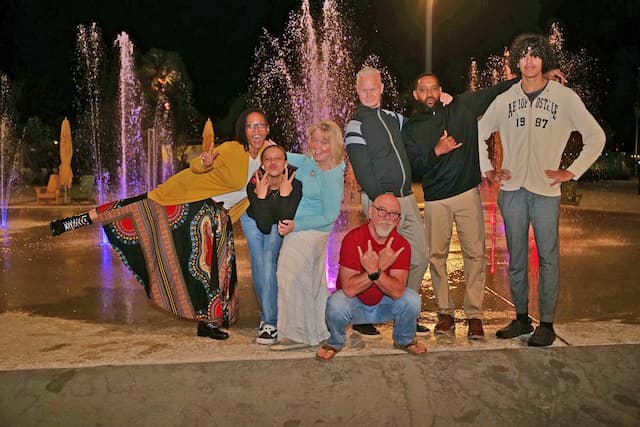Why Would I Tell Someone They’ve Hurt Me? — Vaneetha Risner

Something wonderful happened last week.
Two weeks ago I’d sent out a newsletter to subscribers with resources on the topic of forgiveness because forgiving has brought me incredible freedom and healing. But I was completely unprepared for how God would use that topic in my own life.
It all started when my husband encouraged me to tell my pastor about a past church hurt, one I thought had been long forgotten but unexpectedly came up again. My pastor immediately encouraged me to go to that person by gently reminding me, “If your brother sins against you, go and tell him his fault, between you and him alone. If he listens to you, you have gained your brother” (Matthew 18:15). My pastor said that the offended party has a biblical responsibility to tell the person who has hurt them. And if the other person doesn’t listen, there’s a biblical process to move forward (Matthew 18:16-17).
I bristled in response. It seemed unreasonable to have me, the wounded person, go to the person who had hurt me. That felt too humbling and vulnerable. What if they dug into their position and merely justified what they did? What if they got angry at me for waiting all this time to say something? What if they minimized or mocked my pain? What would I do then? Certainly that would be worse and would leave me even more upset. I wondered if I was opening myself up to fresh wounds.
To avoid facing the situation, I argued to my pastor, my husband and even to myself, that I wasn’t really that upset and didn’t need to revisit the issue. The incident had occurred 11 years ago, which was an embarrassingly long time to hold onto something. While it felt petty to mention it now, especially because we had a friendly relationship, I knew what had happened had affected my opinion of him.
At Joel’s and my pastor’s urging, I reluctantly sent an email – sketching out the situation, how I felt at the time, and how it had impacted me. I apologized for not bringing up the situation earlier (though personally I didn’t feel there was ever an appropriate time or opportunity). I immediately got a text back, asking if we could meet as soon as possible.
When I opened the door to this friend the next morning, he had tears in his eyes. He unequivocally apologized for what had happened, without excusing or justifying himself in any way. He asked about the repercussions in my life and how he could make amends. He then asked for my forgiveness.
I was speechless.
I had so misjudged him, assuming that he would be defensive, wanting to justify himself instead of hearing me. And because he didn’t try to justify himself, I started to justify him. I said I was sure he didn’t understand how it felt to me at the time and I apologized sincerely for not mentioning it sooner.
It was a beautiful moment as we both cried, and God’s grace surrounded us. I had no idea how healing and holy this reconciliation would be.
This reconciliation highlighted the importance of keeping short accounts. For me, as one who has dealt with chronic illness and various types of painful loss, I know firsthand the tendency to hold onto bitterness and hurt towards friends who have let me down. Bitterness either because they weren’t there when I needed them or made judgmental comments about what I said or did. I realize that when I’m struggling or feeling vulnerable, I am more likely to hold onto hurt than at any other time, and not see anyone else’s perspective.
Ken Sande’s book, The Peacemaker, offers a great framework for forgiveness and reconciliation that I’m going to use as I look at all my relationships with buried hurts. It begins with 4 G’s:
First: Seek to glorify God in the situation (1 Corinthians 10:31). Remembering that I need to glorify God in all that I do is a great reminder when I’m upset about something.
Second: Get the log out of your own eye. This step is taken from Matthew 7:5, which involves seeing your own sin, and apologizing without excuse as my friend did. The Peacemaker offers these 7 A’s of a biblical confession or apology.
-
Address everyone involved or affected
-
Avoid if, but, and maybe – don’t try to excuse your wrongs
-
Admit specifically
-
Acknowledge the hurt – and your sorrow over it
-
Accept the consequences, and make restitution is possible
-
Alter your behavior
-
Ask for forgiveness
Third: Gently restore. This means telling the other person how they have hurt you, not as a harsh confrontation or condemnation, but a gentle plea towards restoration. When people have hurt us or sinned against us, it is a gracious gift to lovingly let them know both for their own good and for the relationship. Perhaps the Lord can use us to open their eyes to something they needed to see. I realize it feels vulnerable to initiate that conversation, particularly when we don’t know how the other party will respond.
Additionally, before going to someone we should first evaluate if it would be better to overlook the situation since it is a glory to overlook an offense (Proverbs 19:11). I try to overlook, which was even my word for 2016. But if I can recall the offense instantly, in vivid detail, then I haven’t overlooked it — I’ve just buried it to protect myself. If that occurs, I should go to the person, admit my failing in it and then tell them my grievance. Sande says that if the offense has seriously done any of these things: dishonored God, hurt other people, damaged a relationship, or hurt the offender himself, we shouldn’t overlook it.
Fourth: Go and be reconciled. This is biblical reconciliation, which requires repentance and forgiveness to be complete. It means that we can be in relationship with the person again, and this relationship will likely be deeper and stronger than it ever was before.
As I reflect on all that has happened, these verses have been staying with me. “Whatever you do, do all to the glory of God …Give thought to do what is honorable in the sight of all. If possible, so far as it depends on you, live peaceably with all…Strive for peace with everyone, and for the holiness that without which no one will see the Lord. See to it that no one fails to obtain the grace of God; that no “root of bitterness” springs up and causes trouble, and by it many become defiled” (1 Corinthians 10:31; Romans 12:17-18; Hebrews 12:14-15).
After my recent experience, I want restoration with other believers in my life. I want to pray about each hurt and ask God how I can glorify Him through it. Perhaps I’m holding onto things that I can overlook. Perhaps I need to admit my long-held grievances and take the first step towards reconciliation. Perhaps I need to see the power of the gospel when I trust the Lord and move forward in faith.
As you look at your own life, what grievances have you been holding onto that you haven’t been able to overlook? Where might God be calling you to take the first step in reconciliation?










